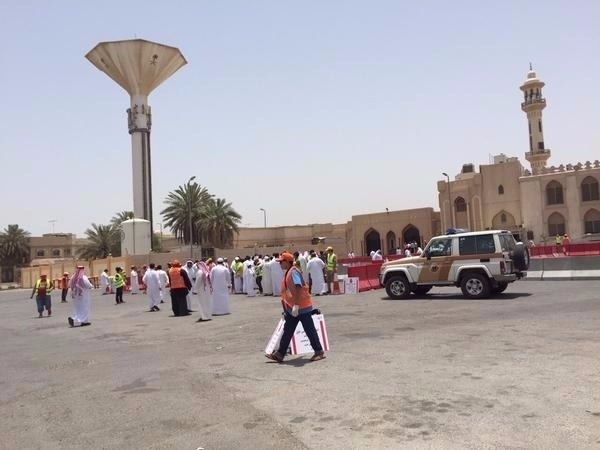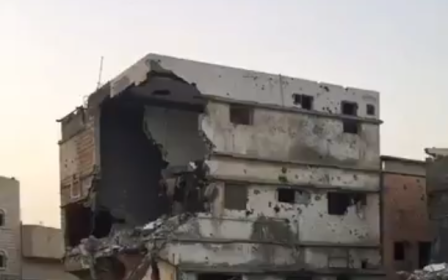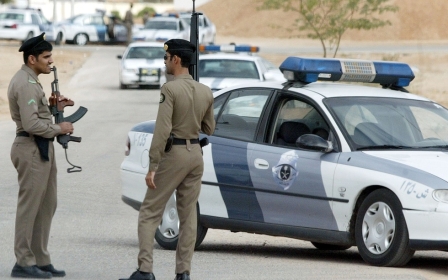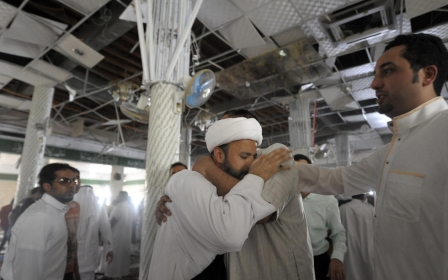Saudi Arabia executes four 'terrorists' in eastern province

Saudi Arabia executed four people convicted of terrorism in Qatif in the eastern part of the kingdom, state television said on Tuesday quoting a statement by the Interior Ministry.
The executions come amid rising tensions in the oil-producing eastern province, where many members of the country's Shia Muslim minority live.
The ministry's statement said the four had been convicted of taking up weapons against the government, joining armed groups and attacking a police station and security patrols.
It was not clear whether those executed were Shia or Sunni Muslims or when the incidents listed had taken place.
Those executed were among more than 20 people on death row in the eastern province, but it was not immediately clear when the death sentences were issued.
Tensions have been on the rise in the area, where Saudi authorities have been tearing down the historic old part of the town of Awamiya to make way for a modern project.
Saudi authorities say the area, which dates back some 200 years to Ottoman times, is being used by fugitives wanted for attacks on security forces and local dignitaries accused of collaboration with the government to escape arrest.
Shia residents have told MEE they are under “siege” by state forces, while the Saudis say that the Shia population here is linked to Iran and are carrying out anti-state activity.
On Saturday, two police officers were wounded in an attack on patrol in Qatif, while a police corporal was killed in a bombing in the same area on Thursday.
Another policeman had been killed and three others wounded in a bombing in Qatif last Tuesday.
Three people, including a police officer, were also killed last month in bombings in Qatif.
In January 2016, Saudi Arabia executed a prominent Shia Muslim cleric and dozens of al-Qaeda members, in what appeared as an attempt to show it would not tolerate attacks, whether by Sunni militants or minority Shia.
The execution of the cleric, Sheikh Nimr al-Nimr, sparked protests in the eastern region, where Shia complain of marginalisation and discrimination by the Sunni-led kingdom. Saudi Arabia denies discrimination against Shia Muslims.
It also led to demonstrations in Iran, where protesters attacked Saudi diplomatic missions, prompting Riyadh to cut diplomatic ties with Tehran.
New MEE newsletter: Jerusalem Dispatch
Sign up to get the latest insights and analysis on Israel-Palestine, alongside Turkey Unpacked and other MEE newsletters
Middle East Eye delivers independent and unrivalled coverage and analysis of the Middle East, North Africa and beyond. To learn more about republishing this content and the associated fees, please fill out this form. More about MEE can be found here.




